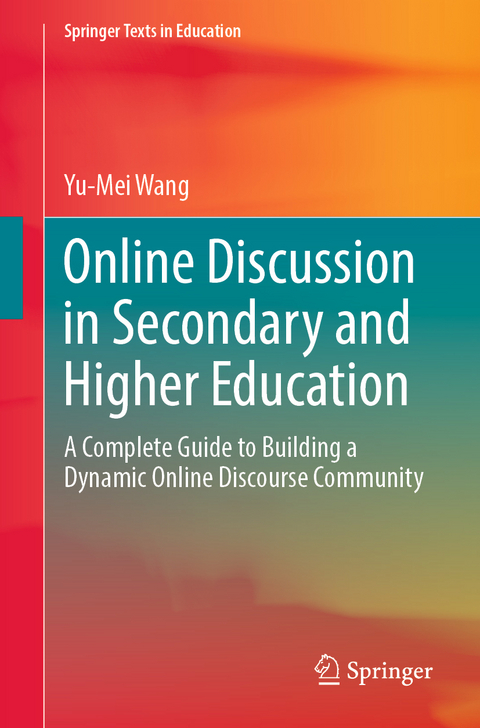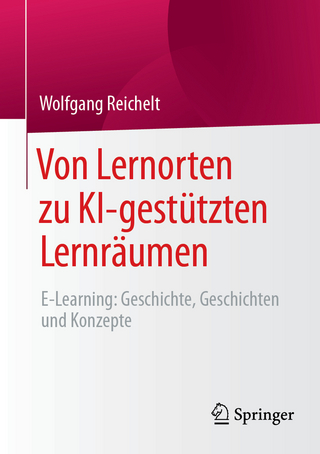
Online Discussion in Secondary and Higher Education
Springer International Publishing (Verlag)
978-3-031-41037-6 (ISBN)
This textbook covers the essentials for successfully conducting online discussions in various course delivery formats, such as online, face-to-face, and blended. Readers will learn how to design online discussions to cognitively engage students, build meaningful discourse communities to promote group dynamics, apply just-in-time facilitation strategies to deepen student learning and utilize robust assessment to ensure learning objectives are achieved.
Online discussion is the lifeline of online learning and it is a pedagogical imperative that instructors have requisite skills in leading online discussions if they are to teach online courses. Leading the online discussion is a huge task, involving a complex process and professionals must master a range of skills to successfully lead online discussion. This book takes a comprehensive and systematic approach to this topic and helps teachers to utilize online discussion to maximize student learning. It is full of ideas and strategies that can be applied immediately in various teaching contexts, and practitioners can replicate examples in teaching practices or mold the ideas and strategies to fit particular teaching contexts.
This textbook appeals to readers with knowledge and skills at various levels. Those who are new to online discussion will appreciate the step-by-step guidance, whereas readers with some experience can pick up skills they need. This flexibility contributes to the ultimate goal of the book - unleashing the potential of online discussion to benefit student academic learning.
lt;p>Dr. Yu-mei Wang has been a faculty member in the School of Education at the University of Alabama at Birmingham (UAB) since 2002, where she teaches discussion-based online courses for both undergraduate and graduate students. She first became involved in online technology in the early 1990's and, fascinated by its educational potential, has been particularly interested in how to build and nurture a dynamic online discourse community to ensure quality online learning. Through her research, she is convinced that human connections across distance is the key to fulfilling the promise of online technology and her commitment to this goal is reflected in her teaching practices. Dr. Wang has published widely in the professional literature and presented at international and national conferences. Prior to her appointment at UAB, she taught educational technology courses and served as the director of the computer lab in the School of Education at the University of Guam.
Chapter 1: Do Students Learn through Online Discussion?.- Chapter 2: Design to Engage Students.- Chapter 3: Lay Down Groundwork: Forming, Accessing, and Inducting.- Chapter 4: Commonality.- Chapter 5: Interdependence.- Chapter 6: Rules.- Chapter 7: Instructor as Facilitator.- Chapter 8: Questioning to Facilitate.- Chapter 9: Assessing Online Discussion: A Holistic Approach.
| Erscheinungsdatum | 04.01.2024 |
|---|---|
| Reihe/Serie | Springer Texts in Education |
| Zusatzinfo | XVIII, 193 p. 3 illus. |
| Verlagsort | Cham |
| Sprache | englisch |
| Maße | 155 x 235 mm |
| Gewicht | 329 g |
| Themenwelt | Schulbuch / Wörterbuch ► Unterrichtsvorbereitung ► Unterrichts-Handreichungen |
| Geisteswissenschaften ► Psychologie ► Pädagogische Psychologie | |
| Sozialwissenschaften ► Pädagogik ► Schulpädagogik / Grundschule | |
| Schlagworte | Assessment of Online Discussions • Designing Context Specific Questions • Online Course Design • online discussion • Online Discussion Environment • Online Learning • Online Learning Space Design • Peer Questioning • Questioning in Online Discussion • Questions as Facilitating Strategies • Student Learning through Online Discussion • Teacher Presence in online classroom |
| ISBN-10 | 3-031-41037-8 / 3031410378 |
| ISBN-13 | 978-3-031-41037-6 / 9783031410376 |
| Zustand | Neuware |
| Haben Sie eine Frage zum Produkt? |
aus dem Bereich


